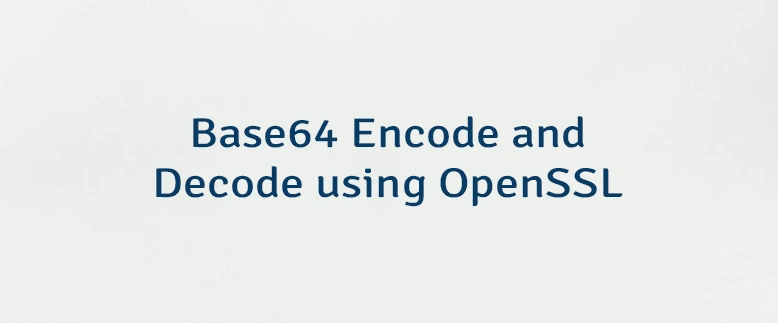Base64 is an encoding and decoding scheme commonly used to convert binary data into a printable ASCII text format and back. This tutorial demonstrates how to perform Base64 encoding and decoding using OpenSSL.
Commands have been tested on Ubuntu.
Encoding string
The openssl base64 command allows you to perform Base64 encoding and decoding. You can encode a string as shown below:
echo "Hello world" | openssl base64Decoding string
To decode Base64, use the -d option:
echo "SGVsbG8gd29ybGQK" | openssl base64 -dEncoding file
Create a text file for testing:
echo "Hello world" > data.txtEncode the content of a text file and display the result in the terminal:
openssl base64 -in data.txtEncode the content of a text file and save the result to a different file:
openssl base64 -in data.txt -out out.txtDecoding file
Create a text file containing Base64 encoded data:
echo "SGVsbG8gd29ybGQK" > encoded_data.txtDecode the content of a text file and display the result in the terminal:
openssl base64 -d -in encoded_data.txtDecode the content of a text file and save the result to a different file:
openssl base64 -d -in encoded_data.txt -out out.txt



Leave a Comment
Cancel reply